US Officials Deny Any Deal With Iran To Release Frozen Funds
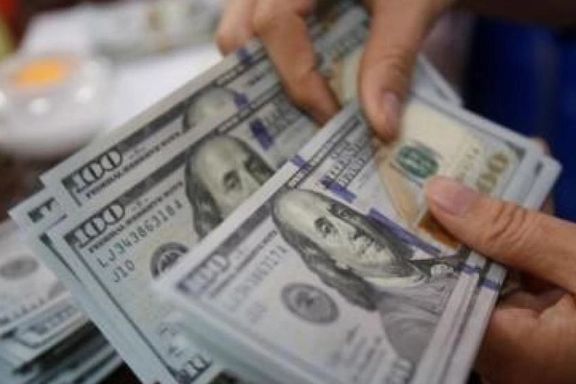
A US official has denied Iranian media reports that $7 billion of Iran’s frozen funds will be freed in exchange for the release of three American dual citizens held as hostages.

A US official has denied Iranian media reports that $7 billion of Iran’s frozen funds will be freed in exchange for the release of three American dual citizens held as hostages.
An unnamed senior State Department official said on Monday that “We have two separate negotiations underway with Iran: one for a mutual return to full implementation of the JCPOA and one on the release of all four US citizens unjustly detained in Iran”, noting that “At this stage, neither negotiation has been successfully concluded”.
“Any reports otherwise, including reports about the transfer of Iranians funds are false. Our partners have not released these restricted funds to Iran, nor has US authorized transfer,” the source said.
Warning of Iran’s propaganda campaign that regularly suggests progress on agreements to prop up its currency, the source said that such reports usually appear whenever the Iranian rial is under strong market pressure, adding that there is “no reason to think any different this time”
Iran’s currency hit a new low against the US dollar in over two months, as nuclear talks remained deadlocked.
“Given the sensitivity, we urge caution in relying on anything other than official" US confirmation on this topic, the source added.
“We are continuing to approach these negotiations with the utmost urgency and urge Iran to do the same. Iran must allow US citizens Baquer (Bagher) and Siamak Namazi, Emad Shargi, and Morad Tahbaz to return home to their loved ones”.
Iran official government news website, IRNA reported Monday that a senior foreign official would visit Iran on Tuesday to conclude a deal to free the frozen funds. The foreign ministry immediately denied the claim.
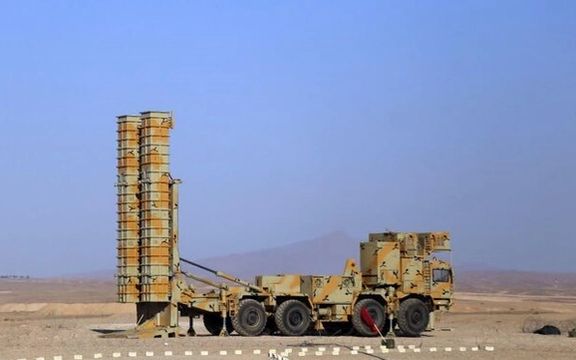
Iranian weapons-trafficking networks are reportedly helping to smuggle munitions and military hardware sourced from Iraq to Russia for its military campaign in Ukraine.
The Guardian quoted Iranian-backed Iraqi militias and regional intelligence services Tuesday as saying that the undercover networks were used in the past month to supply rocket-propelled grenades (RPGs), anti-tank missiles and Brazilian-designed rocket launcher systems.
The RPGs and anti-tank missiles were in the possession of Hashd al-Shaabi, the most powerful Shiite militia umbrella group, and were transported to Iran through the Shalamcheh border crossing since March 26, where they were received by the Iranian military and taken on to Russia by sea, a commander of the militia branch that controls the crossing told the British newspaper.
A source within Ḥashd al-Shaabi said the organization also sent in pieces two Brazilian-designed Astros II rocket launcher systems, known in Iraq as the license-built version Sajil-60, to Iran on April 1.
The equipment was loaded on three cargo ships – two Russian flagged and one Iranian flagged – and crossed the Caspian Sea from Iran’s port of Bandar Anzali to Astrakhan in southern Russia.
A source who helped organize the transport said the Iranian authorities had also donated an Iranian-made Bavar 373 missile system, which is similar to Russia’s S-300, to Moscow. Tehran also returned an S-300 to Russia, the source said.
Last Friday, The Telegraph reported that Russia is running out of some weapons because critical parts were made in Ukraine, including Kh-55 nuclear capable cruise missiles that are also used by Iran and China.
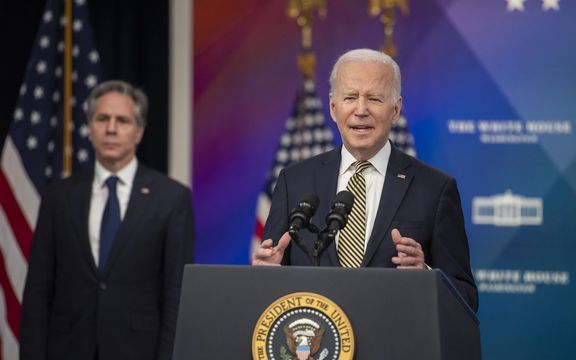
In two separate initiatives Monday, opponents of removing Iran’s Revolutionary Guard from a US terrorist list urged President Joe Biden not to take such a move.
In one initiative, 70 experts writing to Biden told him that removing the Revolutionary Guard “would threaten American lives, harm Gold Star Families, and empower a terrorist organization sponsoring daily attacks against U.S. interests and allies. The delisting would be strategically shortsighted and dangerous to U.S. national security interests.”
Negotiations that started in Vienna in April last year to restore Iran’s 2015 nuclear deal known as JCPOA came to a halt in March as Tehran reportedly demanded the removal of its Islamic Revolution Guard Corps (IRGC) from the US Foreign Terrorist Organization (FTO) list.
In a second initiative, 14 Republican Senators, led by Sen. John Kennedy of Louisiana sent a letter to the White House urging President Biden not to remove the IRGC designation as a terrorist organization that they said is “responsible for hundreds of American deaths.” The Senators also voiced their opposition to a new nuclear deal with Iran that would provide Tehran with billions of dollars of sanctions relief and frozen funds.
“Not only would this removal be wildly misguided, but it would betray our partners and allies in the region—particularly Israel and the Gulf states. These allies and partners already hold concerns that the United States is reducing its regional presence. The enactment of such a deal would provide the Iranian regime access to funds that it would use to destabilize the region through terrorist proxies,” the Senators said.
Opposition to such a move intensified last month with most Congressional Republicans and some Democrats appealing on various occasions to the White House not to consider making a concession.
Last week, signals emerged form the administration that President Biden was opposed to removing the IRGC from the FTO list, but other signs pointed to the possibility that the US might take such a step while keeping the designation of IRGC’s extraterritorial Qods (Quds) Force as a terrorist organization.
In March, 49 Republican Senators issued a statement urging President Biden not to revive the JCPOA without Congressional approval. “The administration has thus far refused to commit to submit a new Iran deal to the Senate for ratification as a treaty, as per its constitutional obligation, or for review under statutory requirements that passed on a bipartisan basis in response to the 2015 deal,” they said.
The 70 experts who wrote to Biden on Monday pointed out that the IRGC “is engaged in active terrorist plots to kill former U.S. government officials,” referring to explicit Iranian threats to kill high-ranking officials of the Trump administration, including former Secretary of State Mike Pompeo.
Among the signatories were former State Department Special Envoy for Venezuela and Iran Elliot Abrams, Ilan Berman of the American Foreign Policy Council, Amb. Paula Dobriansky, former Under Secretary of State for Global Affairs, former US Senator Joe Lieberman and former US National Security Advisor Robert McFarlane.
The letter concluded by saying, “Mr. President, no deal can be worth giving terrorists a green light to kill Americans, empowering a terrorist organization to harm U.S. interests and allies, or turning our backs on American victims of terrorism. For the sake of our national security, we implore you to maintain the IRGC’s FTO designation.”
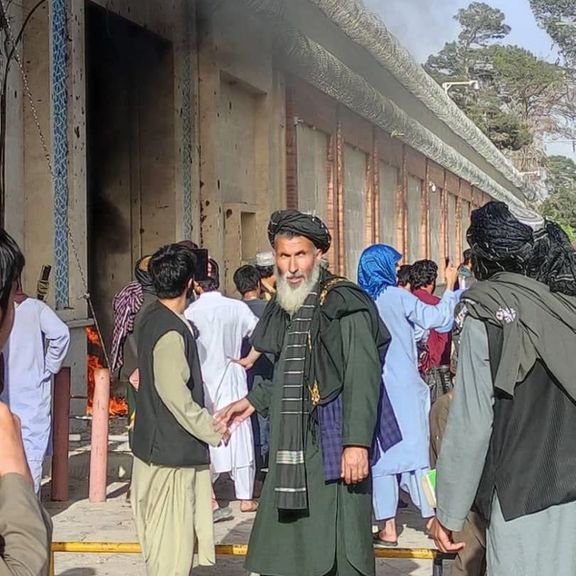
Protestors Monday attacked the Iranian consulate in Herat, Afghanistan, hurling stones, smashing security cameras, and burning tires before they were dispersed by Taliban security.
Iranian foreign ministry spokesman Saeed Khatibzadeh called on Taliban officials to ensure the security of Iran’s embassy in Kabul and its missions across Afghanistan. He warned of efforts on social media to whip up anti-Iranian sentiment over alleged mistreatment of Afghan immigrants in Iran.
Sectarian tensions have risen since last week’s killing of two Shia clerics in Imam Reza shrine, Mashhad, attributed to Sunni extremists. Many Afghans are in Iran unofficially, with numbers increasing since the Taliban took Kabul last year as the United States ended its 20-year military presence.
A conservative newspaper in Tehran claimed Thursday that 8 million Afghans were in Iran, and that the Mashhad knife attack reflected Iranian authorities’ lax approach in allowing violent extremists amid refugees. Jomhuri Eslami reminded readers of the Taliban’s past anti-Shia animosity and said there was no difference between the group and Isis-Daesh, the Islamic State group.
Earlier on Monday, demonstrators outside Iran’s embassy in Kabul held banners with pictures of refugees and the words "Isn't Afghan a human being?"
Ambassador Bahador Aminian met in recent days with Afghan acting foreign minister Amir Khan Muttaqi and former president Hamid Karzai, presumably to further Iran’s hopes of a broad-based government.
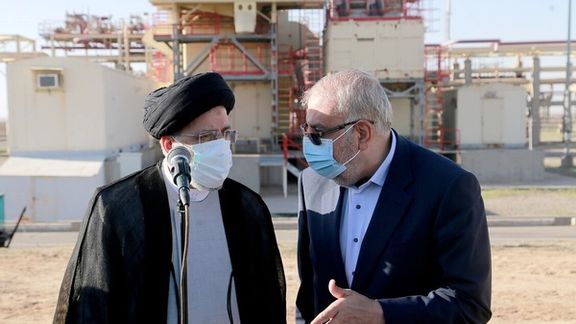
As Iran’s currency fell further against the US dollar Monday, more questions were raised in Tehran as to why extra oil exports do not turn the economy around.
The currency, rial, fell to a three-month low of 280,000 to one US dollar on Monday.
Iranian government officials including President Ebrahim Raisi and Oil Minister Javad Owji have been recently boasting about a 40-percent increase in Iran's oil exports and revenues.
Conservative newspaper Jomhouri Eslami wrote last week, "What is the impact of the extra revenues, if officials are right about selling as much oil as in the months before the US imposed sanctions?”
The daily wrote: "Some individuals officials are making pleasant statements to entertain the people, but their statements are not rooted in reality, and this will disappoint the people and will erode their trust in the government."
"While the prices of essential commodities and other goods are rising daily,” and people are suffering, “making hollow statements about improvement in the economy will not fool anyone," Jomhuri Eslami wrote.
Former reformist lawmaker Mostafa Kavakebian wrote in an April 8 tweet: "Government officials say that the Raisi administration can sell millions of barrels of oil at $100 per barrel” by circumventing US sanctions, and even releasing Iran's frozen assets in South Korea. “But why these measures do not affect people's livelihood and our diplomats are still wasting their time to get results from the Vienna talks?"
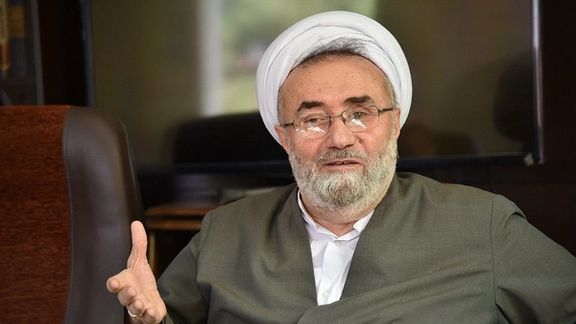
Hardliner journalist and activist Abdollah Ganji, who is close to the IRGC, tweeted in response, "Incidentally, I had the same question and asked the oil minister ‘if you selling more oil and you can repatriate the money, why we do not see its impact on people's livelihood?’ He said: We spent most of that money to make up for the $17 billion budget deficit from last year. The rest of it was spent on importing foodstuff with double prices on the global market."
Responding to the same question, social media users wrote in their comments that the extra income's impact is not visible "Because there are too many of those who steal the money."
Another comment read: "It is all lies. They do not sell more oil and do not bring any money into the country. They export the same amount of oil in barter trade deals. And when they bring back any money for selling the cheap oil, they have to pay a high percentage to middlemen." Yet another Twitter user said: "The system is corrupt, and it corrupts others. The situation will not get better as long as this regime is in power."
Oil Minister Javad Owji had said on March 24, "Iran has reached a record high of crude exports and revenues since sanctions hit the country’s oil industry in 2018." His Twitter post was accompanied by a quote from Supreme Leader Ali Khamenei, who praised the Raisi government for circumventing US sanctions.
Owji added that "The Oil Ministry provided hard currency and rial funds to the government beyond its budget commitments."
The minister's statement was in line with international media reports in February that said Iran’s oil exports had risen despite US sanctions. Reuters reported on February 10 that in the preceding two months daily shipments had surpassed one million barrels a day, the highest since May 2019.
Although there have been more exports, the additional revenue is probably too small to have a visible impact. If there were no US sanctions, Iran could export 2 million bpd and earn close to $60 billion a year at current prices, but Tehran is getting less than half of that now because even if it exports 1 million barrels pd, that is half the pre-sanction volume, sold at a discount.
Meanwhile, middlemen who do the illicit shipping take a big cut and a significant amount of the money probably does not come back in cash, but in food imports, as the oil minister’s remark seemed to suggest.
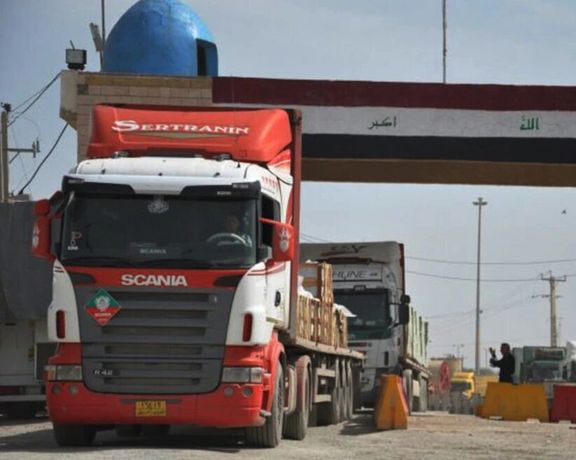
Iraqi authorities were forced Saturday by people to open the Shalamcheh border crossing to Iranian trucks without inspections or usual administrative processes.
The border crossing is north of Iran’s oil center Abadan and close to Iraq’s Basra province.
The move came after Iraqis stormed the crossing and removed barriers. With around a quarter of Iraq’s population below the poverty line − around double that in Basra province − and the Iranian rial relatively low, hundreds had gathered on the Iraqi side to protest against the authorities barring the import of competitively priced items including potatoes, tomato, eggplants and carrots.
Following the protests, an official in Iraq’s customs administration ordered staff to expedite procedures at the crossing for the entry of agricultural and food products.
Iran’s policy of subsidizing food products and gasoline has long encouraged their export to neighboring countries with higher prices, whether through ‘legitimate’ channels or smuggling. Iraq has just announced a new electronic system aimed at monitoring border trade, including at the five official crossings along its 1,600km frontier with Iran.